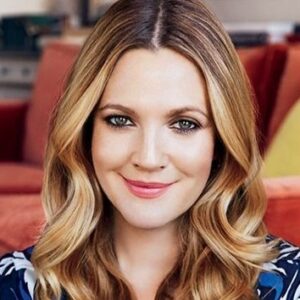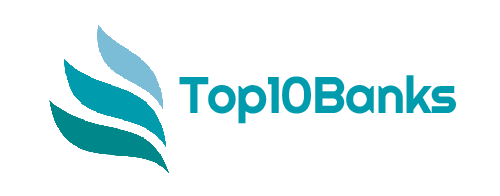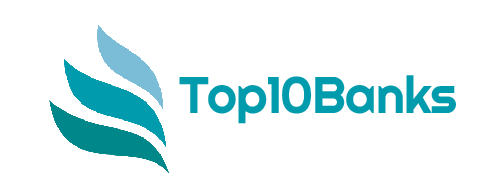Banking on Options: Why You Should Consider Having More Than One Bank Account

Colvin Smith
As an entrepreneur and member of numerous investment platforms and communities, I see how valuable financial research can be in the long run. It allows for better financial management and more accurate decisions.
If you are currently on the fence about having more than one bank account, read on to see which accounts may be right for you.
Although you could go and sign up for 100 different bank accounts, a more important question to ask yourself is if you should. And if you decide that having multiple accounts is the right move for you, would it benefit you more to have them all with the same bank or at different ones?
Since different kinds of bank accounts offer different benefits, it is important to understand your options before making a decision.
In this post, you'll learn about the most popular types of bank accounts and their features, why having multiple accounts might be advantageous, and some pitfalls to avoid.
Content
Should I Have Multiple Bank Accounts?
First, let's look at the benefits of having multiple bank accounts.
1. Save money while still having liquid funds available
The main purpose of having multiple accounts is to have a principal checking account, which is where you get paid and pay your bills, connected to a primary savings account. This saver account is for when you need money in the future or for emergency expenses.
By having these accounts at the same bank and linking them, you can move money between the two without any hassle. So why not just have one checking account?
By splitting your savings into different "buckets," you can both monitor your savings progress and ensure that you're using smart money habits. And since life is unpredictable, keeping some of your savings readily available when emergencies come up.
2. Achieve multiple savings goals
Another perk of having multiple accounts is the ability to save for more than one goal at a time. For example, you can have on account for a down payment on a home, another for this year’s family vacation, and then saved funds in case of an emergency.
With this strategy, you can organize your goals, develop a savings plan for each bucket, and closely monitor your progress.
3. Earn bank sign up bonuses
Some people have multiple accounts solely to transfer money and acquire welcome bonuses from various banks.
For this to work, you have a primary account that you maintain for the long haul, as well as other accounts which you only keep open until the bank tells you that you've qualified for the bonus and won't incur any early termination fees.
4. Maximize FDIC coverage
If you have saved a lot of money, you need to think about how to protect it. The FDIC will insure your deposited wealth up to $250,000 per individual, per institution.
This means that if you have $750,000 in a single savings account, up to $500,000 of it could be at risk if the banking institute goes bankrupt. However, if you divide that money into multiple accounts, your entire balance will be protected.
5. Enjoy unique perks from multiple banks
Although all banks offer similar benefits, they do differ in some ways.
For instance, one account might offer fee-free international money transfers, another might come with a cashback or rewards debit card, and another might give discounts on loans.
Opening multiple bank accounts gives you the flexibility to choose the account with the best perks for each situation, rather than having to choose one account and forego the benefits of others.
Most Common Types Of Bank Accounts
Let's now look at the various bank account types to help you understand which one best suits your needs.
Checking Accounts
A checking account is the essential tool of your financial life. There are many different types of checking accounts, so it’s important to choose one that best suits your needs.
The checking account is generally the first bank account that people open. Many use it for their daily transactions like bills, ATM withdrawals, and direct deposits.
Most checking accounts offer a debit card, physical checks and online/mobile banking access. You can often avoid monthly service fees by setting up direct deposit or maintaining a minimum balance.
Although most banks offer a traditional, no-frills free checking account, here are some different account options:
Checkless Accounts
Now that the banking industry is moving increasingly online, many banks are offering checking accounts without physical checks. These types of accounts are typically only available online.
The main benefit of using a checkless account is that it often comes with lower monthly fees and more flexible overdraft charges.
Age-Based Checking Accounts
Many large banks create different checking account types for specific age brackets, such as kids, high schoolers, college students, and seniors.
Accounts for young bankers typically have extra security features and robust guardian controls. For example, with a student checking account, you can expect to have overdraft protection and no minimum balance requirements.
Meanwhile, most senior checking accounts don't charge monthly fees and provide free checks.
Premium Checking Accounts
With a premium checking account, you have access to exclusive discounts and offers that are not available with a standard account. In exchange for these perks, you may be required to keep a higher minimum balance or pay monthly maintenance fees.
Interest-Bearing Checking Accounts
The key advantage of an interest-bearing checking account is that you can make money from your deposits. The amount you earn depends on the annual percentage yield (APY), which is the interest percent you earn based on your balance.
The APY is generally higher for savings accounts than it is for checking accounts.
Rewards Checking Accounts
If you are iffy about getting a credit card but still want to earn rewards on your spending, then a rewards checking account is probably the right choice for you. With this type of account, the perks are based on your debit transactions as opposed to credit card expenses.
Savings Accounts
A savings account is an excellent place to store money for future plans or unexpected costs. This type of account usually earns interest, making it ideal for growing your funds without easy access to withdraw the money.
Your savings account is not generally intended for your everyday banking transactions. You will most likely need a checking account as well that links up to your savings. In the event you do need to withdraw cash or transfer funds, understand that usually there is a limit of just six withdrawals allowed per month by federal law.
Traditional savings accounts allow you to deposit money and earn interest on your deposited funds. However, if you're looking to earn more interest on your deposited funds, then a high-yield savings account (HYSA) may be a better option for you. HYSAs are offered by many online-only banks and typically offer higher interest rates than traditional savings accounts.
Money Market Accounts
A Money Market Account is a type of bank account that offers features from both savings and checking accounts. Like savings accounts, money market accounts usually earn interest. But unlike savings accounts, you have more flexibility when it comes to accessing your cash.
Some money market accounts, for example, come with a debit card that can be used for everyday spending. They also typically allow more withdrawals and transfers than savings accounts do.
In the past, Money Market accounts offered higher interest rates than standard savings accounts. However, with the recent competitive HYSA offerings, this is no longer always the case.
Business Bank Accounts
A business bank account is crucial for small businesses, or if you plan to start a small business in the future. In general, most businesses need a separate checking account that is not associated with the owner's personal finances.
The money in these accounts usually goes towards business-related purchases, such as inventory, employee paychecks, and company trips. Businesses often open different types of accounts that are better suited for their specific size and needs. These accounts may have more relaxed rules or come with extra benefits to help the company run smoothly.
Certificates of Deposit (CDs)
A CD is a savings account that you open for a set amount of time, during which you earn interest at a fixed rate.
If you touch your money during the CD term, you will be charged an early withdrawal fee which could eliminate any interest earnings.
The main advantage of a CD from a bank is the guaranteed interest rate; however, you cannot access your money during the set term.
Retirement Accounts
Retirement accounts are not the same as bank accounts. They are long-term investment accounts that help grow and protect your money until you retire.
The most common form of retirement accounts are IRAs, Roth IRAs, SEP IRAs, and 401(k)s.
If you want to add funds, you have to link your main bank account (or set up direct deposit), though you can't touch that money until retirement.
The goal is that your money will grow over time through compounding, so you have a comfortable nest egg to withdraw from during retirement.
What Bank Account Is Best For Me?
With all of this knowledge about different bank accounts, it's time to learn how to choose the right one for you.
The Type of Bank You Want
The banking industry is facing an interesting dilemma. On one hand, large, traditional banks like Chase, Bank of America, and Wells Fargo still control a huge chunk of the market. But on the other hand, newcomer online banks are starting to make serious progress.
All banks in the United States are required to be insured by the Federal Deposit Insurance Corporation (FDIC), meaning your money is safe if the bank collapses.
Let’s take a look at the differences between traditional banks, online banks, and credit unions, and what sort of accounts you can generally expect from each one:
Traditional Banks
A traditional bank offers the same services as any other bank — a physical location, tellers and advisors, and its own ATM network.
Traditional banks offer a variety of account options and financial services that can benefit you.
Large banks have always been terrible at giving competitive interest rates, and they tend to nickel-and-dime their customers with extra fees. Unfortunately, the level of customer service can also differ greatly between banks.
Online Banks
Because online-only banks, such as Quontic or Discover Bank don't have to worry about the costs of maintaining physical buildings and staffing them with employees, they can be more flexible in serving their customers.
Online banking typically has low or no fees, as well as higher interest rates. Most online banks don't have their own ATMs, but will either reimburse you for any associated fees or have a partnership with an external network--like Allpoint.
One of the potential downsides to online banking is that it can be harder to get personal help when you need it.
So if you value in-person customer service or use cash frequently, online banks might not be the right choice for you.
Here are online banks that we recommend:
Credit Unions
Unlike banks, credit unions are nonprofit organizations whose primary focus is the betterment of their community. Credit unions often have the same benefits as a bank, but with a smaller, more local feel.
The average credit union will offer the same services as a bank, such as checking and savings accounts, loans, etc. But some of the larger credit unions provide additional amenities.
In contrast to big banks, you generally won't find as many account options and services at a credit union.
Is The Bank Offering Any Sign Up Bonus?
Many banks are always vying for your business and offer perks when you open a new account, such as bank sign-up bonuses or no fees during an introductory period.
Don't let the bonus be your main criteria for choosing a bank account if you're looking for somewhere to keep your money long-term. Instead, make sure that the financial institution meets all of your needs so that you don't have to switch banks later down the road. Sure, bonuses can help narrow down your choices, but they shouldn't be decision makers on their own.
If a bank offers a customer $400 to sign up but then charges that customer $30 monthly, the initial bonus effectively becomes void after 13 months. In other words, if you are a loyal customer for many years, you will end up paying way more than only 400 in total.
Beware of Fees
When choosing a new bank account, you can avoid unexpected fees by fully understanding the terms of your new account.
For example, common bank fees include monthly maintenance fees, ATM fees, overdraft protection fees, and money transfer services.
Even though these fees might not look high, they can quickly add up to a sizable chunk of money if you have an account that doesn't suit your needs. Make sure to figure out the minimum balance required for any new accounts you open.
If you can't frequently maintain a minimum balance, choose a different bank. If overdrafting is common for you, make sure to find a bank with lower fees for that.
No one likes paying fees. Plus, it can make budgeting more difficult. However, the good news is that there are several no-fee accounts available. For bank accounts that charge fees, there are typically ways to avoid them if you're careful.
For example, you can avoid monthly maintenance fees from your checking account provider if you set up a direct deposit or keep a minimum balance.
How the Interest Compares
APY is the most important factor to consider when looking for any type of interest-bearing account, especially a high yield savings account. Higher APY means you'll earn more money simply by keeping your money in that account.
Interest might not initially seem like a top priority, but as your account grows, having a good interest rate will have amazing benefits for your financial future.
Although high yield savings accounts gain the most interest, money markets are also a decent option.
How Many Bank Accounts Can You Handle?
Not everyone is equally organized and responsible. If you are very diligent about never missing a bill payment, then you might be able to handle more accounts than someone who isn't as responsible.
That means if you don't keep track of your bank accounts, you could end up in financial trouble. Therefore, this is an important consideration to make.
Imagine that you have an old checking account from your hometown. Several years have passed, and you now live in a different city. You open up a new bank account nearby.
If you don't keep track of your old account, you might not realize that you accidentally made a purchase on it- thus causing it to be negative and rack up daily overdraft fees.
Even worse -- you might not even be aware of these fees because you failed to update your email address when you moved. What's more, if you don't keep an eye on each bank account's transactions every day, then it's easy to miss something fishy or a charge that isn't correct.
Although this is unfortunate, these types of situations happen to thousands of people daily. The cost can be high if you're not careful. Therefore it's important that you're responsible for managing your accounts properly.
How To Manage Multiple Accounts (Responsibly)
Now that you're considering it, you need to know how to manage multiple accounts responsibly. A personal finance app is the best way to track your bank account activity in one place.
By monitoring all your social media accounts in one place, you'll not only stay organized, but save time too!
There are many personal finance apps that you can use to track your bank account and spending. Our two favorites are Personal Capital and Mint, which are both free and easy to use. These apps will help you unlock valuable insights into your spending habits so that you can make better financial decisions.
How Many Bank Accounts Should I Have?
As you can see, there's a lot to think about when you're opening a new bank account, and it can be tough to decide how many accounts to open or which ones are right for you.
In my opinion, a good place to start is by linking an online checking account with an HYSA for easy, automatic transfers; that equals two accounts.
With your core accounts in place, you can start thinking about where else to invest your money. If it makes sense to open a business account or another account for long-term growth, that's fine — as long as you keep track of all of them.
Decide how much money you want to save and set up that number of bank accounts accordingly.
By understanding your wants and needs in a banking partner, you will be able to make a decision much more easily.
About the author

Colvin Smith
As an entrepreneur and member of numerous investment platforms and communities, I see how valuable financial research can be in the long run. It allows for better financial management and more accurate decisions.






